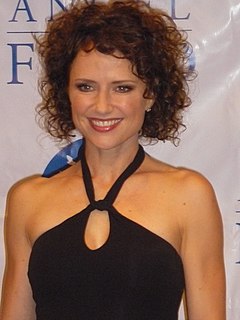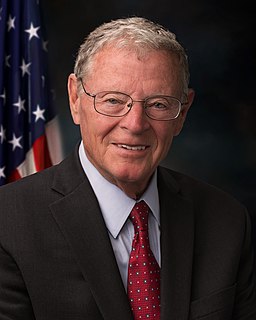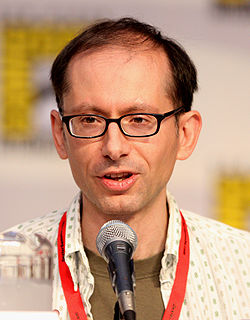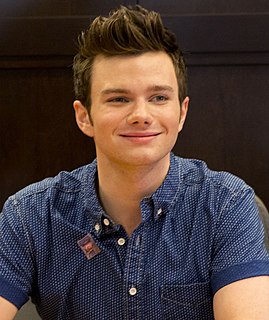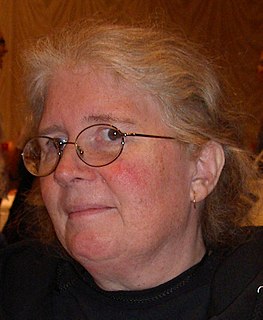A Quote by Jean Louisa Kelly
When they're watching musicals, I've heard people say, 'That's not realistic! Why would they just start singing?' But, I think they can believe it if they try! I mean, science fiction requires a suspension of disbelief, but people allow themselves to sit back and enjoy it anyway.
Related Quotes
We don't stop and realize that we are dealing with people - the far-left doesn't think we need a military to start with, they really don't. You've heard me say this before, they really believe if all countries would just stand in a circle and unilaterally disarm and hold hands then all threats would go away, they believe that. They would never say that but they do believe that.
I would say that Futurama: Bender's Big Score requires a lot of concentration to watch. It's a very complicated time-travel story. Part of the joke on that was just that the complexity would be over the top. This one is a more straight-forward science-fiction story, I would say. Alien invasion and people running in terror, that kind of thing, with a slight twist of there being an inappropriate physical relationship with the big octopus monster. We've got a straight-up science-fiction movie.
I would say that most of my books are contemporary realistic fiction... a couple, maybe three, fall into the 'historic fiction' category. Science fiction is not a favorite genre of mine, though I have greatly enjoyed some of the work of Ursula LeGuin. I haven't read much science fiction so I don't know other sci-fi authors.
I've never written a fiction before about real people. . . . I read everything that I could find by people who met them and tried to get some impression of them, but as always when you write fiction, even if you have completely fictitious characters, you start by thinking of what is plausible, what would they say, what would they be likely to do, what would they be likely to think. At some point, if it is every going to come to life, the characters seem to take over and start speaking themselves, and it happened with [COPENHAGEN].
One would expect an actress to stand onscreen mostly as a caricature. If she would say, "I'm selling shoes," you would believe her. She says it and it creates this fiction, non-fiction perception of the film. People believe it because she says it. If she said, "I'm a butcher," people would believe it too, I think.
I don't think I've ever tried to be something that I'm not. People do that for you. People try to pigeonhole you. People tried typecasting me, before they even saw me in anything else. I've never understood that. I was like, "Why don't you wait until my next project, before you start telling my what my career is going to look like, for the next 10 years?" I've never let it set me back because I always knew the world would try to do that for me, anyway.
[Science fiction is] that class of prose narrative treating of a situation that could not arise in the world we know, but which is hypothesised on the basis of some innovation in science or technology, or pseudo-science or pseudo-technology, whether human or extra-terrestrial in origin. It is distinguished from pure fantasy by its need to achieve verisimilitude and win the 'willing suspension of disbelief' through scientific plausibility.
I have always been intensely uncomfortable with the idea of a science fiction writer as prophet. Not that there haven't been science fiction writers who think of themselves as having some sort of prophetic role, but when I think of that, I always think of H.G. Wells - he would think of what was going to happen, and he would imagine how it would happen, and then he would create a fiction to illustrate the idea that he'd had. And no part of my process has ever resembled that at all.
I don't think humanity just replays history, but we are the same people our ancestors were, and our descendants are going to face a lot of the same situations we do. It's instructive to imagine how they would react, with different technologies on different worlds. That's why I write science fiction -- even though the term 'science fiction' excites disdain in certain persons.
